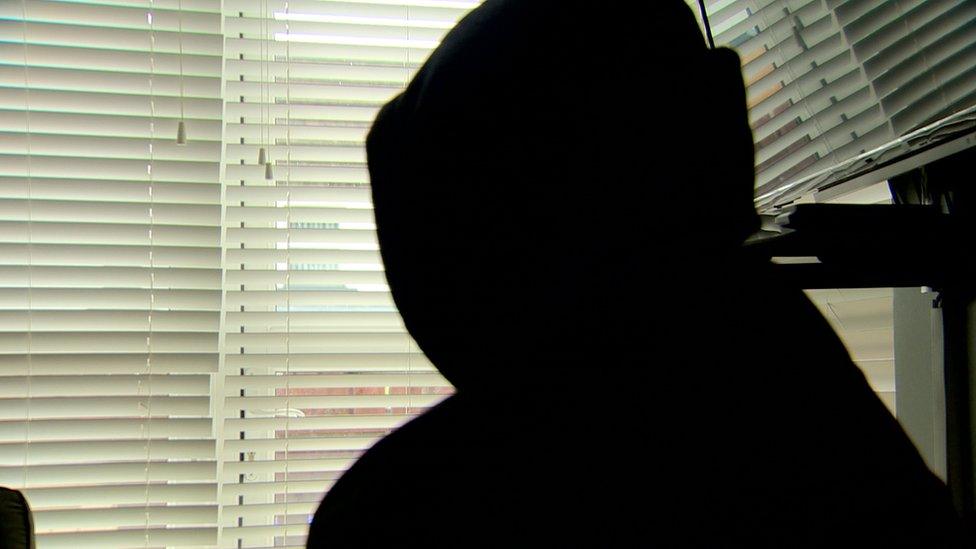PSNI data breach: Details of NI police in hands of dissident republicans
- Published
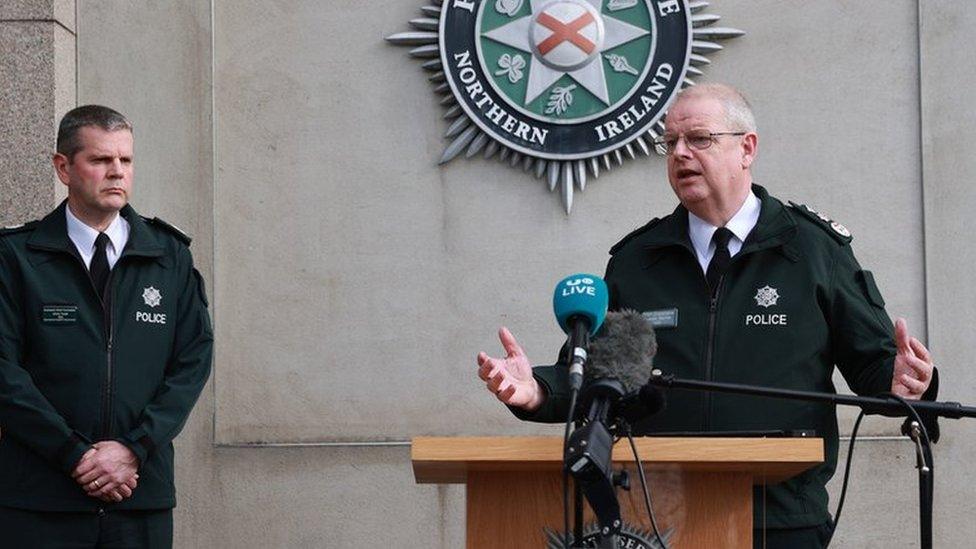
PSNI Chief Constable Simon Byrne (right) and Assistant Chief Constable Chris Todd
Information mistakenly released in a major data breach is in the hands of dissident republicans, Northern Ireland's police chief has said.
The data includes the surname and first initial of 10,000 Police Service of Northern Ireland (PSNI) employees.
It also includes their rank or grade, where they are based and the unit in which they work.
Simon Byrne said the information could be used to "intimidate or target officers and staff".
"We are working round the clock to assess and mitigate this risk," he said.
He said dissident republican paramilitaries could use the list of names to generate "fear and uncertainty".
Details released in what Mr Byrne earlier called a breach of "industrial scale" included names of people who work in sensitive areas such as surveillance and intelligence.
In March, the terrorist threat level in Northern Ireland was raised from substantial to severe, meaning an attack is highly likely.
It followed an attack on a senior officer who suffered life-changing injuries after being shot several times by dissident republican paramilitaries.

The threat to officers means they must be extremely vigilant about their security.
Many, especially from nationalist communities, keep their employment secret, in some cases even from many family members.
Liam Kelly, the chairman of the Police Federation for Northern Ireland (PFNI), the body that represents police officers, urged all police officers and staff to exercise "maximum vigilance".
"We must do all we can to frustrate and prevent attacks on our colleagues and their families," he said.
"That means varying the routes we take to and from work, changing routines and re-assessing our personal security both on and off duty."
Mr Byrne said the safety and welfare of officers and staff was his top priority and said an online service had been set up to deal with any staff concerns.
Contrary to some reports, there was no evidence of movement of officers and staff outside the organisation and he paid tribute to the "resilience" of staff, he added.
Mr Byrne said the force was being strongly supported by a range of cyber specialists, and continuing to liaise with the UK government.
He said that at the beginning of Monday there were 45 members of PSNI staff the organisation "hadn't caught up with" to discuss the breach, adding that things were moving quickly.
The police chief said contact and face-to-face meetings were continuing to be organised and that the details of retired colleagues were not part of the breach.
NI Secretary Chris Heaton-Harris said the UK government remained committed to providing specialist support and expertise.
"I know that PSNI and security partners will continue to take proportionate action to protect officers and staff and their families," he added.

A 'sinister' document was posted outside Sinn Féin office, said Gerry Kelly
Earlier, police said they were investigating an incident where a document was posted on a wall in west Belfast, allegedly showing information released in the breach.
Names were redacted from the document, which was found near a Sinn Féin office alongside a photo of the party's policing spokesperson, Gerry Kelly.
There was also a threatening message which read: "Gerry we know who your mates are."
CCTV cameras by the office had not been working, Sinn Féin said.
DUP MLA Trevor Clarke, a member of the Policing Board, said it reinforced that the threat from the leak would have to be "monitored potentiality for some years to come."
Meanwhile, in a separate development, it emerged on Saturday that 200 officers and staff were not informed of the theft of personal data from a superintendent's car for a month after it was stolen.
A document containing the names of 200 officers and staff was taken along with a police-issue laptop on 6 July.
Nearly half of Northern Ireland's police officers, about 3,000, have contacted the Police Federation about a potential damages case after the mass data leak.
All are likely to be in line for some form of compensation.
It is thought the bill could run into tens of millions of pounds.
- Published14 August 2023
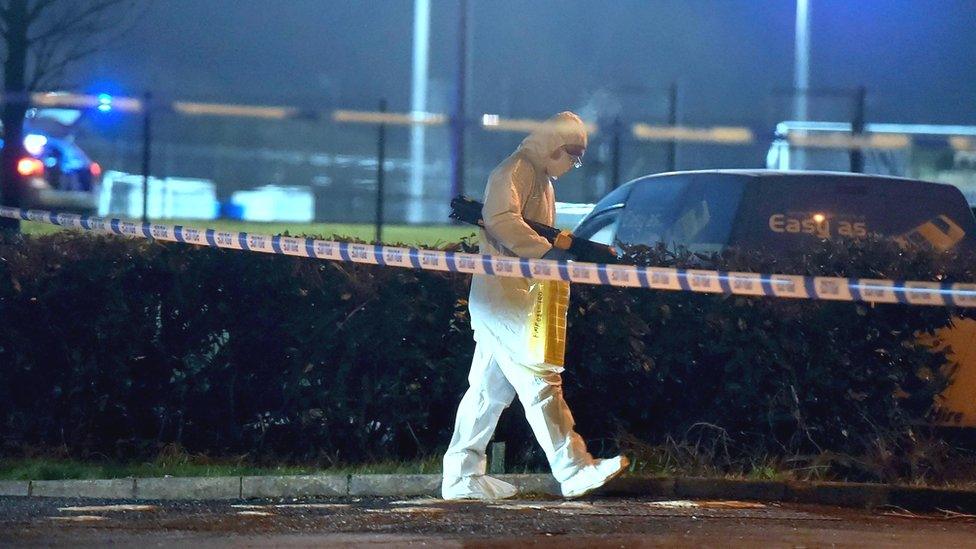
- Published14 August 2023
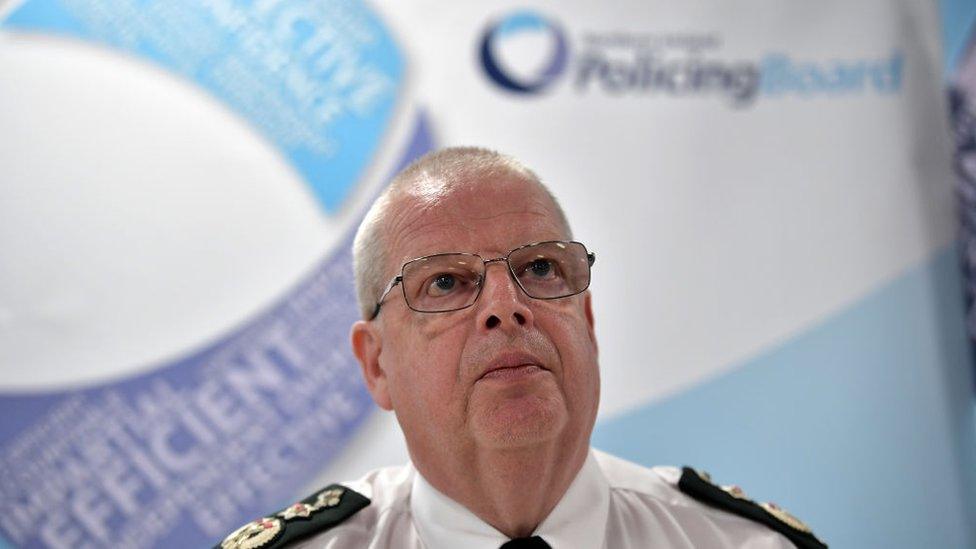
- Published12 August 2023
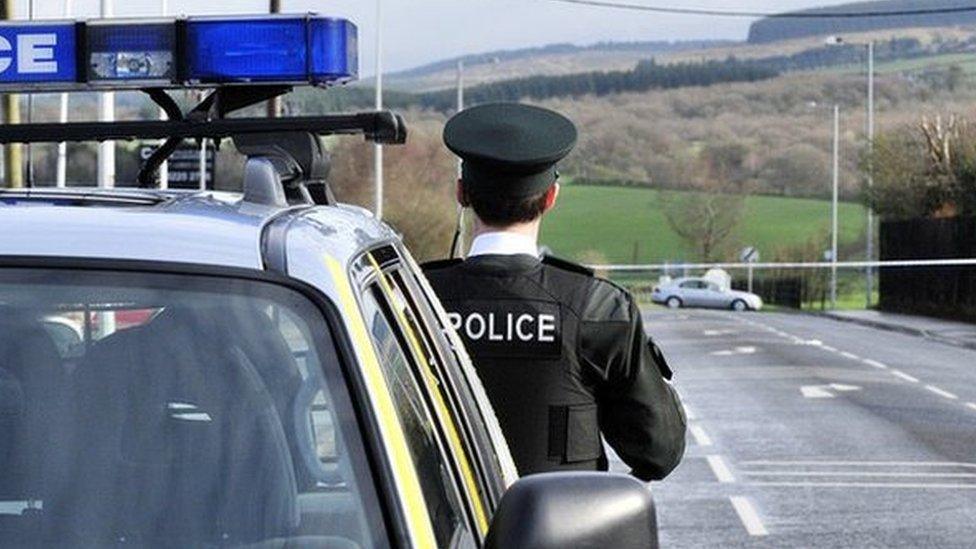
- Published14 August 2023
